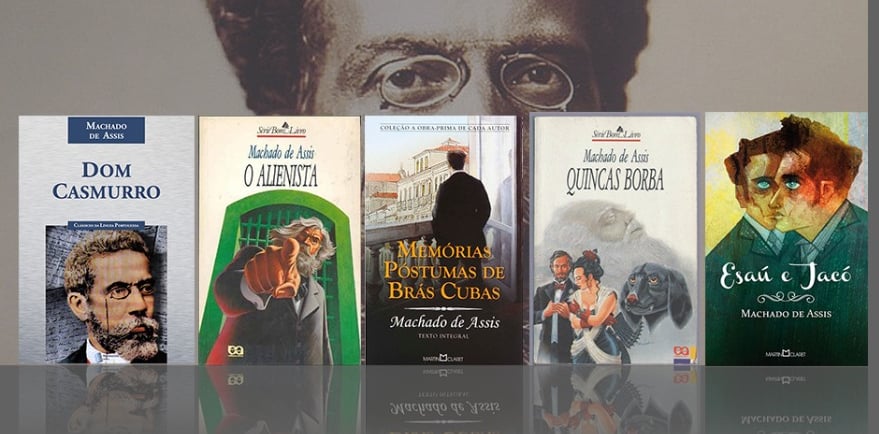Machado de Assis: The Timeless Genius Who Still Resonates in Literature.
Machado de Assis: The Timeless Genius Who Still Resonates in Literature. Machado de Assis and Educational Resistance: The Silencing of a Genius. Few authors have left as profound an imprint on Brazilian literature as Machado de Assis. Widely regarded as one of the greatest writers in the Portuguese language, his work masterfully dissects human nature, social hypocrisy, and psychological complexities.
FACES AND FACTS
Everton Faustino
4/13/20252 min read


Despite being born into a modest background in 1839 in Rio de Janeiro, Machado rose to become a literary giant, redefining storytelling and establishing Brazilian realism. His influence continues to shape generations of writers, and yet, modern education struggles to fully embrace his legacy.
The Genius of Machado de Assis
From early poems to his groundbreaking novels, Machado de Assis’s writing evolved into a sophisticated form of literary realism, characterized by irony, introspection, and psychological depth. His three most celebrated masterpieces—Memórias Póstumas de Brás Cubas, Quincas Borba, and Dom Casmurro—challenged traditional narrative techniques and remain subjects of extensive literary analysis.
📖 Memórias Póstumas de Brás Cubas (1881) introduced an unreliable narrator—one who narrates his story posthumously. Through cynical and philosophical observations, Machado exposes the contradictions of Brazil’s elite.
📖 Quincas Borba (1891) explores the philosophy of "Humanitism," a satirical critique of social power games and survival instincts.
📖 Dom Casmurro (1899) presents one of literature’s greatest enigmas—did Capitu betray Bentinho? Machado’s exploration of memory, jealousy, and perception remains highly relevant today.
A Legacy Ignored by Modern Education?
Despite his undeniable impact, Brazilian schools often limit the study of Machado de Assis’s work. His sophisticated writing and sharp social critique are sometimes seen as too complex for younger students, leading to a superficial treatment of his legacy in classrooms. In contrast, modern curricula tend to prioritize easily digestible content aimed at standardized testing, sidelining literary depth.
This lack of emphasis on Machado’s works deprives students of a critical understanding of Brazil’s social evolution and the universal themes of his writing. By neglecting Machado, the education system misses an opportunity to strengthen analytical thinking and expose young readers to one of the greatest minds in literature.
Why Machado de Assis is Still Relevant?
🔎 Hypocrisy & Social Masks – His critique of societal façades mirrors today’s political and cultural landscape.
🔎 Ambition & Power Struggles – Themes of manipulation and greed continue to dominate the corporate and political arenas.
🔎 Jealousy & Subjective Reality – Dom Casmurro serves as a literary parallel to modern debates on misinformation and biased narratives.
🔎 Economic Inequality – His reflections on social mobility remain central to today’s discussions on wealth distribution.
🔎 Existentialism & Isolation – In an era of hyperconnectivity, his explorations of loneliness are more relevant than ever.
Global Recognition & Enduring Influence
Machado de Assis’s influence extends beyond Brazil. International literary figures such as Harold Bloom and Susan Sontag have praised his brilliance, comparing him to Fyodor Dostoevsky and Henry James. His ability to dissect human behavior has made him a universal writer, transcending borders and time.
As Brazil continues to navigate political and social transformations, Machado de Assis’s writings remain a mirror reflecting the complexities of the human condition. To ignore his work is to miss a profound opportunity to understand the intricate layers of Brazilian identity and global literary thought.
🚀 It's time for Machado de Assis to reclaim his rightful place in literature and education. His works are not relics—they are guides to understanding society, history, and ourselves.
Tags: Machado De Assis, Brazilian Literature, Literary Realism, Dom Casmurro, Memórias Póstumas De Brás Cubas, Quincas Borba, Brazilian Authors, Classic Literature, Social Critique, Literary Legacy, Psychological Fiction, Education In Brazil, Cultural Heritage, Literary Influence, Global Recognition
Type the words below into the Unveiled Brazil search engine to learn more:
EDUCATION
UNIVERSITY
